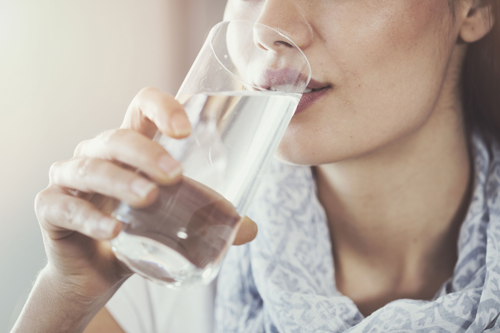Reverse osmosis filtration is one of the most effective ways to ensure your home or business has access to high-quality, clean and safe water. While this process is very commonly recommended as a water treatment solution, some people do not understand exactly what it is or how it gets rid of contaminants so efficiently. Today we are sharing the answers to some of the most frequently asked questions about reverse osmosis.
1. What Is Reverse Osmosis?
Reverse osmosis is also known as RO, and it’s one of many advanced water filtration methods. It was first developed by the United States Navy to help take water from the sea and turn it into safe drinking water for sailors. They use an innovative membrane filter that forces water under pressure and through the small pores in a semi-permeable membrane. Most in-home units combine this membrane with mechanical and carbon filtration to create water that is very clean and that tastes great.

2. Is Distilled Water the Same as Reverse Osmosis Water?
This is one of the most common frequently asked questions, and distilled water and water treated using reverse osmosis technology are distinctly different. Distilled water can sometimes have lower mineral content than reverse osmosis water, but the distillation process performs poorly when there are volatile organic chemicals with a low boiling point inside the water. If your city uses chloramines instead of chlorine to treat the water before it goes to your home, there is a high chance it won’t be eliminated during the distillation process. However, reverse osmosis will remove these chemicals with ease. Depending on what is in your water, we can answer your frequently asked questions and determine what processes are most effective for treatment.
3. Do Reverse Osmosis Units Need Electricity?
No! Reverse osmosis units run on water pressure. If you are utilizing an ultraviolet lamp, pressure-boost pump or other electric attachments, those will require electricity to work. However, the most basic units will use water pressure alone. This means that in the event of a power outage you will still have access to pure, clean water.
4. Are Water Softeners Compatible with Reverse Osmosis?
This is one of the most frequently asked questions by customers with hard water, and the answer is no. Water softeners can actually help the membrane in your reverse osmosis unit to last even longer. Calcium and magnesium are challenging for the membrane to remove quickly, so having a softener to pre-soften the water can dramatically improve the efficacy of your unit. The membrane will filter out 98% of all sodium in the water, so you don’t need to worry about the softener leading to increased sodium content.
5. What Substances Can Reverse Osmosis Remove from Water?
Reverse osmosis systems are very skilled at removing:
- Protozoa (Cryptosporidium, Giardia, etc.)
- Bacteria (E. coli, Salmonella, Shigella, Campylobacter, etc.)
- Viruses (Hepatitis A, Norovirus, Rotavirus, Eteric, etc.)
- Metal ions
- Sodium chloride
- Copper
- Chromium
- Lead
- Arsenic
- Fluoride
- Radium
- Sulfate
- Calcium
- Magnesium
- Potassium
- Nitrate
- Phosphorus
- And more!
6. What Are the Health Benefits of Water Treated with Reverse Osmosis?
Reverse osmosis systems are designed to produce healthy, safe water. We are happy to answer any frequently asked questions you might have about the substances specific to your water supply, but in general, they are the best way to get out dangerous substances that could be present. Removing toxic chemicals, toxins and metals from your water can improve the health of you and your family now and reduce your risk of contracting other diseases in the future. Purified water is also free from elevated sodium levels or water that has high mineral content.
If you or someone in your household is immunocompromised, reverse osmosis water ensures that bacteria and pathogens that could harm them are removed before they take a sip. Purified water also typically tastes and smells better than tap water, particularly if your municipal water supply has odor-causing contaminants inside of it. We will work with you to perform water testing and determine the right filtration and treatment solutions for your home based on your water quality, existing contaminants, budget and more. We are here to help!
Answers to All of Your Frequently Asked Questions
Atlantic Blue Water Services is here to help homeowners, home sellers, home buyers and business owners in need of a quality water test and answers to their frequently asked questions. If you have are concerned about the contents of the water at your home or business, we can complete a wide range of water tests and help you find the right water quality solution for your home. Finding the right water filtration solution does not need to be hard with help from us. Call us today to schedule your water testing at 410-840-2583.
